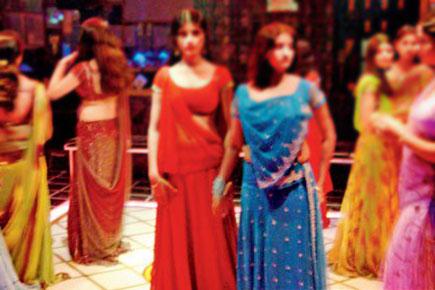With the state Cabinet approving a draft amendment bill, the ban on dance bars across Maharashtra is set to be re-introduced and will now be extended to three-star and five-star hotels as well

The see-saw on the legality of dance bars, which the state has been riding since 2005, yesterday crashed on familiar ground: the ban on dance bars stays.
ADVERTISEMENT
Also read: State desperate to frame new order banning dance bars in Mumbai

Picture for representation
Despite simmering opposition from within the state Cabinet, the R R Patil-led home ministry wangled its approval to introduce an amendment bill that will ban dance performances from all types of hotels.
In a cabinet meeting yesterday, while some Congress ministers objected to the NCP-led home ministry’s stance on an all-out ban, the bill was given the go-ahead.
Also read: Mumbai dance bars can be reopened: Supreme Court
The amendment seeks to plug a legal gap on the basis of which the Supreme Court had set aside the ban. As per the amendment, dance performances in three-star and five-star hotels will also be prohibited.
Incidentally, in passing the bill, the cabinet disapproved a suggestion by group leaders of political parties for the draft bill to be forwarded to a joint committee of the state legislature for review.
Instead, the home department forged ahead and introduced the proposal to ban dances, by making necessary changes in the Bombay Police Act. When the amendment came up for discussion in the meeting yesterday, a few Congress ministers are believed to have questioned the motive behind completely banning the activity. Heated debate took place for some time, during which Patil was firm on banning the bars.
A minister, sources said, claimed that the ban would affect at least a few lakh people, including owners, management and employees of the hotels, besides the dancers and their dependents. The industry would lose substantial business, the minister said.
The dance activity was compared with other forms of dances that existed as traditional or folk art and performed for livelihood. But, the home minister was adamant on his decision, saying that the activity needed to be banned for various reasons.
At last, the cabinet gave its approval for the bill. To save itself from judicial scrutiny, the home department is seeking to hide behind section 19(g) of the Constitution, which restrains the fundamental freedoms given under the Right to Live and Right to Earn in larger public interest. Certain sections of the Bombay Police Act would also be changed suitably, sources said.
Anybody who violates the ban may invite imprisonment up to three months and a fine up to R5 lakh, which can be reduced by the courts to one-month imprisonment and R1 lakh. The state is of the view that the dance bars were run purely for profit making, sources said.
 Subscribe today by clicking the link and stay updated with the latest news!" Click here!
Subscribe today by clicking the link and stay updated with the latest news!" Click here!






